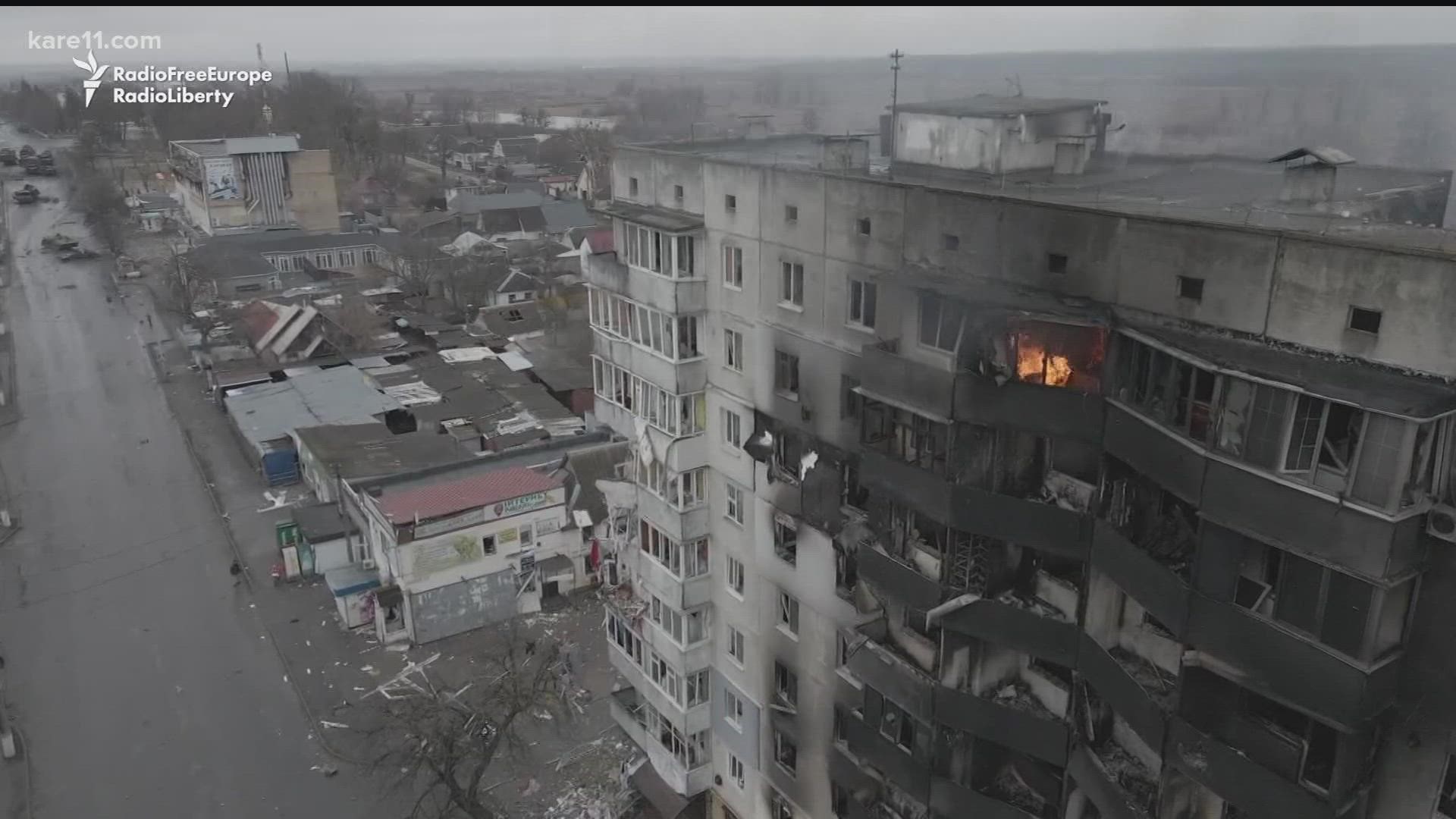MINNEAPOLIS — Russian President Vladimir Putin recently issued a nuclear warning. But how serious is it?
"I think, at the moment, although we should take this seriously, I do think it’s more saber-rattling," said University of Minnesota Political Science Professor Kathleen Collins.
Collins calls the tactic a bold one, meant to intimidate Ukraine after his plan to blitz the country was met with continued and increased resistance.
"Reports I've seen coming out Russia suggest that Putin thought this would be accomplished literally within the course of days," said Collins, who describes his strategy as urban warfare.
That's when someone targets a country's infrastructure, like we've seen Putin do in Ukraine — taking control of a nuclear power plant, destroying a television tower and bombing apartment buildings.
"I think it suggests an attempt to undermine the ability of Ukraine to provide power to its own population," said Collins and doesn't necessarily suggest an escalation to nuclear war.
"If he wants to take Ukraine and benefit from it economically and geo-politically, then he needs a Ukraine that's reasonably intact," said Collins. "If he destroys the country with a nuclear weapon and has to deal with a nuclear fallout, then he will not be able to use Ukraine to build his empires."
Despite the tactic, Collins says other countries cannot brush off or overlook Putin's threats.
"We need to be prepared to respond to this, and I think all western governments and NATO are taking this incredibly seriously," said Collins.
Collins says Putin knows a nuclear war will escalate tensions in the West and he doesn't necessarily want to draw the Western world into his conflict that directly.
A conflict, she says, the Ukrainians will remain a unified and motivated group of people throughout, while also creating a long-term revolt if Putin does take over.

